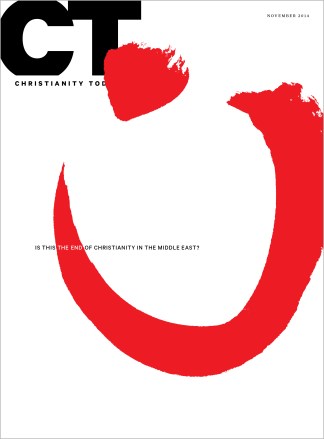In his landmark 1997 book What’s So Amazing About Grace? Philip Yancey challenged fellow evangelicals to act in a way that matches their language and beliefs about grace. He returns to this theme in his latest book, Vanishing Grace: What Ever Happened to the Good News? (Zondervan), updating the call to grace-filled living within a culture whose Christian consensus has frayed. Author and Christianity Today blogger Amy Julia Becker spoke with Yancey about putting grace into action in contexts where Christianity no longer holds sway.
Why did you choose to revisit the subject of grace?
Sociologist and researcher Amy Sherman has said that Christians tend to have three models for interacting with society: fortification, accommodation, and domination. To put that in layman’s terms: We hunker down amongst ourselves, water down our witness, or beat down our opponents. For many reasons, those aren’t New Testament models.
So what should we be? We need to create pioneer settlements that show the world a different, grace-based way of living.
We have been spoiled in the United States because of our religious heritage. There was once a common Christian consensus. A few generations ago, Billy Graham would fill the largest stadium in any city, stand up, and say “the Bible says,” and have the audience nod along. Today, belief in the Bible can’t be taken for granted, so appeals to the Bible won’t have the same power. The new paradigm, in this culture, is that you reach out with acts of mercy that touch people’s hearts, and hopefully they want to know why.
We hear nowadays about Christian groups losing university recognition or public prayers and Christmas displays being banned. We feel on the defensive and that we’re the outliers. But much of Christian history has been lived this way, like it was during the Roman Empire, when a small number of Christians modeled another way to live. In a culture like ours, we need to demonstrate first how faith in Christ makes a difference in how we live.
How can Christians emphasize grace while still holding to gospel truths?
John is clear: Jesus came “full of grace and truth.” We’ve done pretty well with the truth part. But . . . let’s restore some balance.
In the Gospels, the more you were an outcast, a sinner, or a failure, the more you were attracted to Jesus. You can’t get that kind of upside-down response just by proclaiming truth all the time, no matter how true it is.
I sometimes think of how difficult it must have been for Jesus. He was around people who were making all these wrong, selfish choices. Imagine what it’s like to be perfect yet to reach out with grace. What a lesson. It’s astonishing how he avoided saying, “I’d love to get off this planet.” He never seemed offended by people who would offend us.
You envision a grace-filled church as one that exists for outsiders. What does this look like?
I write about going to every church in my phone book. Different churches have different emphases. Some focus on their own neighborhoods. Inner-city churches, for instance, strongly emphasize the needs right around them. Others are very missions-minded.
It's a question of stewardship. Some of us are called to be stewards of prosperity and success, and others are called to be stewards of failure, of pain and suffering. It is much harder to be a good steward of success than failure. That was true in the Old Testament with Israel. People forgot God when things were going well yet turned to him during hard times.
This is the situation today. The United States has been blessed with prosperity and success. After the Cold War ended and communism fell, we were the only game in town. How have we stewarded those gifts? I would say not very well.
So the church has an opportunity to be a better steward. We can’t expect the nation to operate by Christian principles; no nation has. But we can expect this of the church. Imagine what would happen if we organized ourselves in the neighborhood, in the city, and in the world as people existing for the sake of outsiders.
We’re tempted to rely on passing laws and winning arguments, but in the end, they’re not the greatest powers. The greatest power is what Jesus did. He died and rose again. That’s where it all started. The more we act like Jesus, not beating people down but showing a better way to live, the more outsiders will look back and say, “Those Christians are different.”










